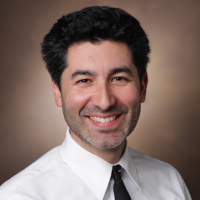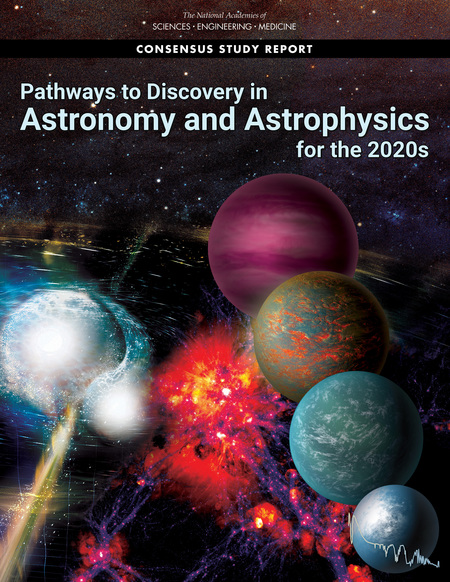by Marissa Shapiro
Keivan Stassun, Stevenson Professor of Physics and Astronomy, professor of computer science and founding director of the Vanderbilt Initiative in Data-Intensive Astrophysics, contributed to a report that will influence U.S. research into outer space for at least the next decade. He served on the steering committee of the Decadal Survey on Astronomy and Astrophysics 2020 (Astro2020), which forecasts research pathways and makes recommendations for the nation’s multibillion-dollar investments for the next decade of astronomy and astrophysics research.

In essence, Astro2020 lays out a blueprint that will fundamentally improve how space exploration missions are planned and executed to avoid delays and cost overruns, starting now and as far out as 2050.
Astro2020’s scientific priorities
The report recommends investments in construction and launching of multiple “extremely large telescopes” on the ground—with primary light-gathering mirrors up to 30 meters across—and giant space telescopes capable of detecting biomarkers in the breathable atmospheres of distant Earth-like worlds, witnessing the cataclysm of formation in the early universe and “hearing” the deafening chirps of massive black holes merging in the hearts of galaxies.
“We were tasked and encouraged by the funding agencies, including NASA and NSF, to really think big, bold, ambitious and long-term,” Stassun said. “We took that to mean that we should not be thinking only about that which can be accomplished in a 10-year period, but also how do we chart the path to accomplish the most ambitious projects, which will be multidecadal and even multigenerational.”
With multiple projects mentioned, including those currently being conducted or under consideration by Vanderbilt astronomers Kelly Holley-Bockelmann, Stephen Taylor, Jessie Runnoe and Karan Jani, the report presents a strategic direction that will influence research trajectories at Vanderbilt.
The report, entitled Pathways to Discovery in Astronomy and Astrophysics for the 2020s, was published by the National Academy of Sciences upon the review of hundreds of white papers, town hall meetings and the advice of 13 subpanels over several years. It recommends strategic and significant investments including across three priority scientific areas over the next decade and beyond:
- Pathways to habitable worlds – Identify and characterize Earth-like planets outside this solar system, with the ultimate goal of imaging potentially habitable worlds.
- New windows on the dynamic universe – Probe the nature of black holes and neutron stars—and the explosive events that gave rise to them—and understand what happened in the earliest moments in the birth of the universe.
- Drivers of galaxy growth – Revolutionize understanding of the origins and evolution of galaxies, from the webs of gas that feed them to the formation of stars.
Supporting diversity in research
Essential to achieving this ambitious set of scientific goals are new investments that provide far greater support for researchers, including those currently underrepresented in the discipline. This new section of the Astro2020 survey reflects greater prioritization of and support for researchers who contribute vast expertise to their field as well as an effort to attract and retain the brightest minds in science to the field.
According to a release, “the report recommends that NASA, the National Science Foundation and the U.S. Department of Energy ensure their policies treat harassment and discrimination as forms of scientific misconduct and invest in workforce diversity at the division and directorate levels—as well as consider including the diversity of project teams and participants as a criterion when awarding funding.”
Support for programs that have demonstrated success—such as the Fisk-Vanderbilt Master’s-to-Ph.D. Bridge Program—and the respect and benefit of local communities, such as Indigenous groups who may be impacted at the sites where large observatories are built, is also underscored.
With eight years as chair of the American Astronomical Society’s Committee on the Status of Minorities and as founding director of Vanderbilt’s Frist Center for Autism and Innovation, Stassun provided key insights to these recommendations.
“Keivan’s leadership in the Decadal gave Vanderbilt a voice in the most influential process in our field. His input on the state of the profession can excite a sea change to transform our field into a vibrant and equitable one that not only pushes the boundaries of what we know about the Universe, but also includes and supports one another as people,” the Vanderbilt astronomers said in a group statement.
Astro2020 was sponsored by NASA, National Science Foundation, U.S. Department of Energy, and U.S. Air Force.
